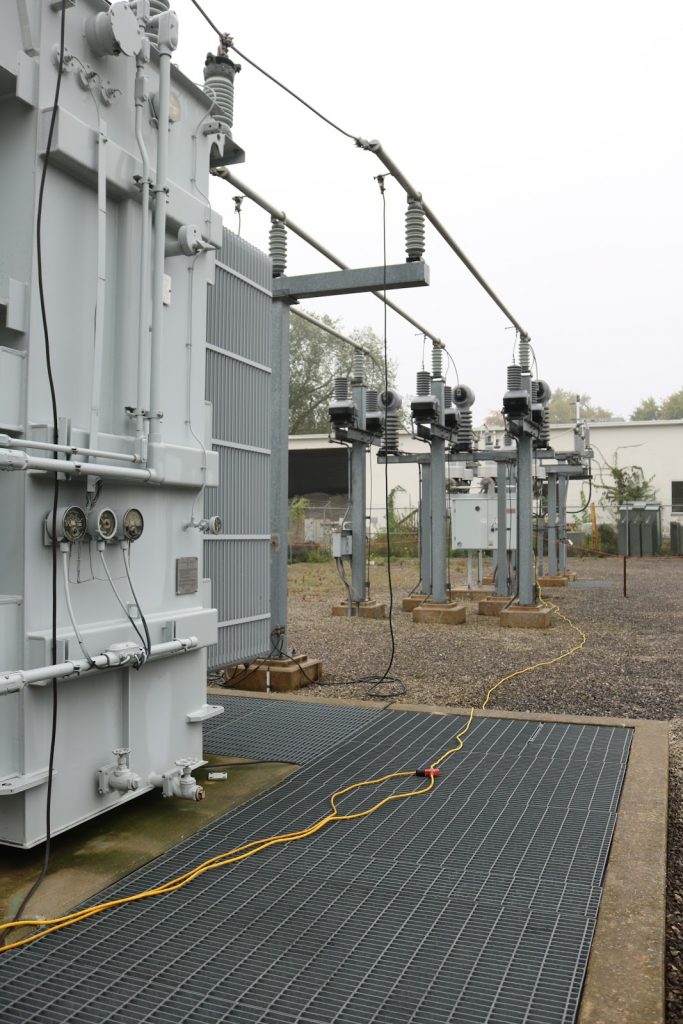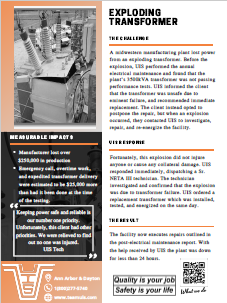Transformer Oil Testing
 UIS can help you discover electrical trouble before it becomes a problem. Transformer oil testing is a key part of any preventive maintenance program and should be conducted on a regular basis. It is an early warning system that helps you set priorities and plan ahead for possible further transformer work and get ahead of the curve of ordering and replacing parts. One of the biggest advantages of transformer oil testing is it can be done without a scheduled shut down of your facility.
UIS can help you discover electrical trouble before it becomes a problem. Transformer oil testing is a key part of any preventive maintenance program and should be conducted on a regular basis. It is an early warning system that helps you set priorities and plan ahead for possible further transformer work and get ahead of the curve of ordering and replacing parts. One of the biggest advantages of transformer oil testing is it can be done without a scheduled shut down of your facility.
The following are some of the most common tests for transformer oil:
Dissolved Gas-In-Oil Analysis
An annual Dissolved Gas-In-Oil Analysis (DGA) is the most important test for transformer oil and can give an early indication of abnormal conditions. As the name describes, this test analyzes the type and quantity of gases dissolved in the oil, using a small sample that is examined in a laboratory. Certain quantities and combinations of gases typically found in the oil can indicate insulation overheating/overloading, liquid overheating, partial discharge (corona), or arcing in the transformer.
Screen Testing
The screen test is a collection of physical, electrical, and chemical tests for transformer oil. Typically, a 1-liter sample of oil is collected. No single test alone will indicate the true condition of the liquid, so it is suggested all be performed. The group of tests includes:
- Dielectric Breakdown: A physical test that measures the breakdown voltage of an insulation liquid and indicates the presence of contaminating agents.
- Interfacial Tension: This test of electrical insulating fluids is an indicator of the presence of polar compounds.
- Color: Oil color indicates aging and the presence of contaminants.
- Acidity: As acid values increase (usually due to oxidation of the oil) the insulating quality of the oil decreases.
- Power Factor (dissipation factor): This test measures the dielectric losses in the liquid, hence the amount of energy dissipated as heat
Other Transformer Oil Tests
The water content test detects the moisture content in parts per million of the liquid insulation. A test to determine polychlorinated biphenyls (PCBs) on a percentage value or as a parts-per-million value is available.
Want to learn more about Transformer oil testing? Call one of our experts to see what test and timeline is right for your transformer. https://teamuis.com/contact-us/






